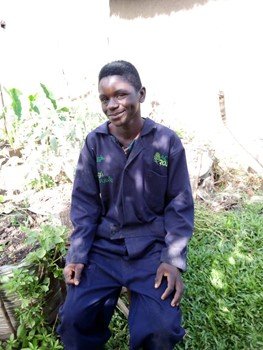How stoves can be a gamechanger for women in rural communities
For rural communities in Uganda, the simple act of cooking a meal can be a long and difficult journey. Women and girls spend hours each day walking into their local forests to collect firewood for fuel. Once back, they’ll breathe in the smoke as they cook.
Burning wood as fuel for cooking is a major contribution of deforestation in the area. But collecting the wood is also an arduous task. Women and girls can spend hours each day on it. For some, this chore is at the expense of school and an education.
Getting time back
If rural communities can use less firewood in cooking, then not only will the local forest and trees have a better chance of recovering, but women and girls will get their time back. Meaning the opportunity to go to school or working to earn an income.
That’s why energy-efficient stoves are a gamechanger. They use a third of the firewood of a traditional stove. They produce more heat, so meals cook more quickly and efficiently. Plus there’s very little smoke. And for those who buy rather than collect their firewood and charcoal, they mean more money to spend on other essentials.
Alice Muhindo preparing a meal with her fuel efficient stove
Energy-efficient stoves have the potential to make a massive difference for communities and the planet alike. That’s why Agri Evolve, a local social enterprise, is giving them out to families Karambi District, Uganda.
Only cutting branches
Alice Muhind used to spend a big chunk of her limited income on charcoal and firewood. “When I heard about the energy saving stoves, I was happy and very excited to get one.” Alice said. “I can now prepare food using the branches from my trees without cutting down the whole tree.”
Once lit, the eco stoves, will remain lit until the wood runs out - so people don’t have to keep feeding and fanning the flames. Plus because the flames are shielded, they’re much safer for little ones in the house.
For Benson Asiimwe, the stoves have meant a job he never thought he could have. “I decided to participate in this project because I never went further in formal education due to the status of my disability,” said Benson. “And most of the times, I do not get opportunities to participate in the income generating activities.”
Benson is delighted to have new skills and a job that provides for him.
Benson and other young people in Karambi are being trained to build and sell energy-efficient stove meaning they’ll be able to provide for themselves and their families in the future. And they are helping protect their local forest and community’s trees for future generations.
“I’m happy that this program is not discriminative, it’s inclusive in nature,” said Benson. “And even if the project ends, I have the skill so, I will continue looking for clients because the stoves are good, and people have liked them so much.”
Although this project is still in its early stages, it’s been easy to see the positive changes it has already brought for people in Karambi District.
Donate today
Your gift today can support communities across Africa to protect their local forests and create environmentally friendly jobs.



